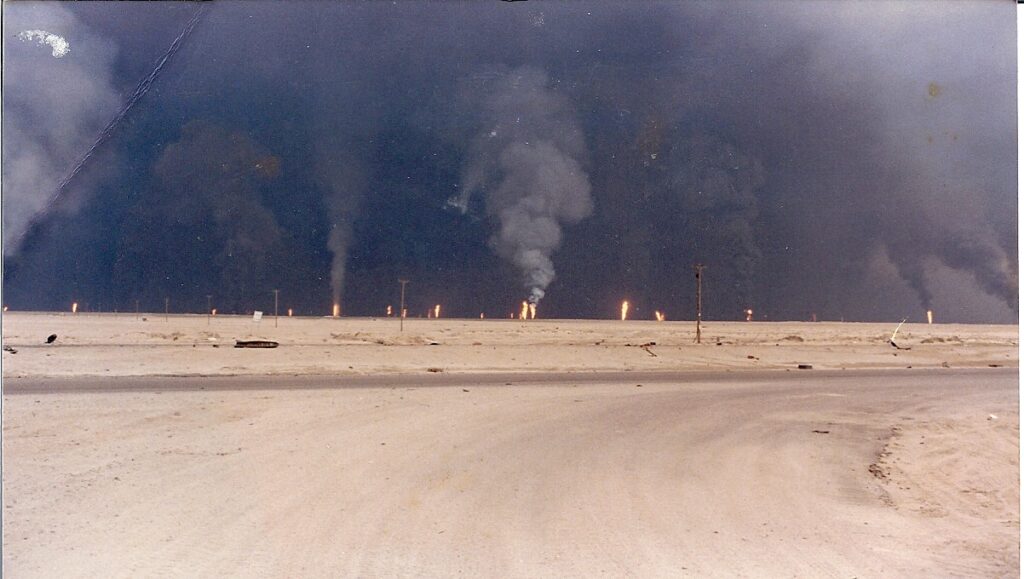LOS ANGELES — “Climate change doesn’t care about our politics.”
We’ve all heard it before. When political strings are attached to climate negotiations, the environment becomes collateral damage, reduced to little more than a leveraging tool in the greater pursuit for political gain.
The belief that politics has no place in climate discussions is at the heart of climate activism today. Activists make a passionate case for the urgency of the impending climate crisis and the need for international cooperation, emphasizing the de-politicization of climate change as the key to progress.
But perhaps that’s exactly the problem. Maybe climate discussions are not political enough.
Turkey’s very own Marie-Antoinette, President Recep Tayyip Erdoğan, has perfected this fine art of weaponizing the climate crisis as part of his political agenda. Most recently, he cancelled plans to attend COP26 in Glasgow over a last-minute security dispute. Though Erdoğan made his political statement, Turkish leadership was ultimately left unrepresented at the conference — despite Turkey’s significant role as both a contributor and victim of climate change. For authoritarian heads of state, apparently, that’s a small price to pay for a trivial show of power to Western counterparts.
That’s the moral of the story, though. Non-democracies cannot be reigned in, because diplomatically speaking, they’ve got nothing to lose. And the environment does not seem to be a real concern for dictators whose most vulnerable citizens bear the brunt of the casualties of the climate crisis, opting to scapegoat minorities and political rivals, instead.
The same can be said of China and Russia, whose presidents failed to attend COP26 despite being two of the largest global polluters. Turkmenistan, whose excessive methane emissions surge on under the leadership of a dentist-turned-dictator. Saudi Arabia, one of the main exporters of oil whose role at the conference was resistant, at best, and saboteur, at worst. And the list goes on, some of the worst global abusers of human rights and democracy assuming the least productive roles in Glasgow.
Non-democracies play by a different set of rules. To them, climate negotiations are political leverage, another tool in their long-running ploy to consolidate power. Another international platform to compromise with unreasonable demands and deplorable human rights records. But to democracies, they’re a fighting chance — a promise made to constituents that they have a responsibility to keep.
When domestic political realities prove to be such a liability for climate progress, it begs the question: is democracy-building the missing piece of the climate puzzle?
Keeping politics separate from the sphere of cooperation on environmental issues has proven to be unproductive. It has only succeeded in giving some of the biggest bullies on the global stage a platform to legitimize international influence and solidify their grip on power domestically, facilitating further abuse against their own citizens. A healthy injection of political progress from successful democracies could be the effort that climate conferences like COP26 need moving forward. It could be the catalyst to true change.
Democracy-building is a powerful tool. And Western democracies have commitments to uphold when it comes to promoting democratic and human rights-oriented values abroad. It’s time for them to make good on this promise, because autocratic regimes are a threat to the future of our planet.
Democratization is as relevant a precedent to mitigating climate change as CO2 emission reduction efforts or corporate engagement. Monitoring international elections, supporting citizen participation, ensuring the inclusion of marginalized groups, facilitating debates and political party competition are all tried and true means to democracy-building efforts, and can be incorporated into the COP negotiations framework. If introducing new methods is not feasible, then bringing in the expertise of organizations like the National Democracy Institute into the process may be.
The time has come for a new platform of engagement at COP conferences moving forward. Democracy as a prerequisite, rather than a bargaining chip. Politics as an agent for positive change, rather than de facto sabotage. Human rights protection as a demand, and not a compromise.
Because the alternative is much too dire. COP26 becoming yet another bullet point on the long-running list of humanity’s failures in cooperation on key issues. And although corporate dollars and climate denialism remain huge obstacles in addressing the climate crisis, they are largely Western concerns.
Throughout much of the world, governments lack the political will to participate in climate negotiations, even to the performative extent that many democracies do. Dictators have no constituents to respond to, no voter base to appease. So autocrats like Turkey’s Erdogan, Russia’s Putin and China’s Xi can afford to be absent, because they answer to no one but themselves. They muster the recklessness to remove themselves from global efforts entirely.
Ultimately, the environment and their citizens pay the price. Democracy is not just a civil rights battle. It’s as relevant to human rights, national security and climate mitigation as anything else.
The future of our planet lies in our hands. With democracy in that future, our prospects don’t seem nearly as bleak. One can only hope that by the time we realize this, it won’t be too late.







